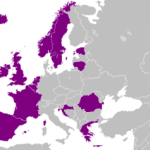This story has legs — last week’s Village Voice featured Elizabeth Dwoskin’s cover story “Too Hot for Citibank?” about Debrahlee Lorenzana, a strikingly attractive young woman who claims to have been fired from the financial services firm for being too sexy. Since the story’s initial publication, the New York Post, Gawker and The Early Show (whose video is embedded above) have joined the discussion, and yesterday in The New York Times Maureen Dowd weighed in on how beauty can impact individuals in society.
Within all the chatter, however, a key question has yet to be asked: how can we work with our sexuality–rather than against it–in business?
According to Lorenzana’s story, it seems her physical appeal may have helped her build business. The Voice reports that in April 2003 the Municipal Credit Union named her “sales rep of the month;” in November 2003 the Metropolitan Hospital in Queens recognized her for “providing world-class customer service;” and in August 2006 she earned a Customer Higher Standards Award at the Bank of America.
At Citibank, she “went out every day and looked for business…then clients would come into the branch asking for her.” Yet in the office, ultimately her sexual energy was killed, as she was removed from the organization along with any potential new clients.
As human beings, we hold the spectrum of humanity within ourselves, and this includes sex. As a career counselor, I’m interested in how this aspect of our selves manifests in the workplace.
The complexities of Debrahlee’s story are difficult to acknowledge, since they hit on a number of hot-button identity issues. Dwoskin writes:
Lorenzana [is] five-foot-six and 125 pounds, with soft eyes and flawless bronze skin, she is J.Lo curves meets Jessica Simpson rack… [Her] mother is Puerto Rican and father is Italian [and she] came to New York from Puerto Rico 12 years ago. She was 21 and pregnant, and had a degree as an emergency medical technician from a technical college in Manati, a small city…
While the racial or ethnic identity of her colleagues is not referenced, it seems that we’re talking about working–or in this case, avoiding working–across differences of race, ethnicity, socio-economic status and gender.
It’s imperative for us to talk about how these dimensions of our identity come into play on the job, so that we don’t act on them unwittingly, and more important, so we can leverage all parts of ourselves to help solve the increasingly complex problems we face in 2010.
Lorenzana’s story contrasts with that of Danica Patrick, although there are significant similarities, to be explored in another post. As well, the repeal of “Don’t Ask, Don’t Tell” will influence how human sexuality impacts the world of work — also to be explored in an upcoming post.
What do you think about how we access and leverage our sexuality at work?




I first heard about Lorenzana on New York City’s Z100 morning radio broadcast where the “Z Morning Zoo,” had only as many, if not fewer, meager details about what actually transpired than we, the public. As such, their broadcast was less of a “violation of rights” debate, more a conversational banter with an off-beat exchange in mostly laymen’s terms.
This radio group and its callers brought up the idea that when and if such job losses occur, allegedly pursuant to a female job eliminee’s physical beauty, that the motivating impetus behind it might have less to do with overt sexism in the workplace and more to do with jealousy experienced by other female co-workers and self-made female power brokers. This presumed jealousy and/or bitterness is said to luxuriate under perfect workplace disguises as it gets expressed though points of order about dress code, conduct, fraternization, seniority, and widely elastic discussions regarding what does or does not constitute appropriate office behavior.
That said, if we take Lorenzana’s claims at face value, it is important to realize that, at least in one sense, the gender biased form of “appearance-based” discrimination that she’s suffering might not be sourced from a single group targeting her as a representative of a different group. She might well be getting this from all sides, some men too distracted to do their jobs (not her fault) and some women too threatened either directly by her looks or indirectly by the attention she gets from male colleagues (not her fault).
Why is that important? Two reasons. First, overt discrimination by one group against another has a particular shape to it, a clear build to the wrong that we can slowly dismantle through awareness, legislation, education, funding, the judiciary, debate, and shared experiences. On the other hand, a person singled out by “both” groups that would be straddling a biased line is a different animal entirely. This style of wrong has a build not too unlike gang mentality, The Spanish Inquisition, overrun attacks, or simple high school cliques. If Lorenzana’s claims are truthful, then they do have a gender-biased element to them, but to fight sexism in the workplace alone is then to attack the incorrect target. Know thy enemy.
The second reason for recognizing bias sourced from multiple camps as important is that when we talk about gender-bias, we are essentially discussing two sole camps. LGBT lifestyles notwithstanding, we are drawing a line between men and women and leaving it at that. “Multiple camps,” in this case, means everybody. It means that even the most open-minded and or cerebral among us can be part of the problem. Having heard about Lorenzana’s plight first on the radio, a completely audio medium, one of my initial suspect thoughts was, “That’s hard to believe.” Then after linking to the article at http://www.slate.com/id/2256622 which included a purposely stylized photograph of the plaintiff, my mind immediately changed to, “Yep. I could see that happening. ” To my very shame, I have to acknowledge that the light-switch like mitigation of my still uninformed opinion was derived from looks alone. I am part of the problem. I am one of everybody.